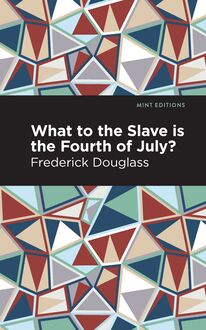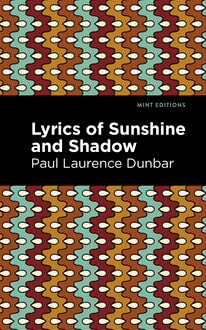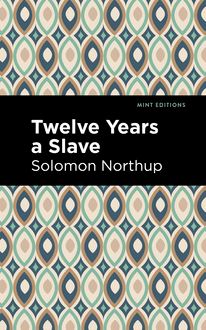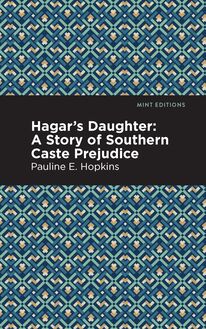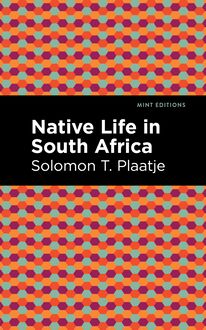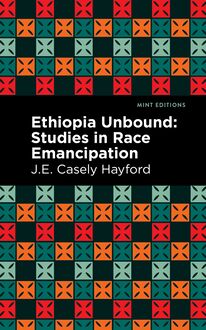-
 Univers
Univers
-
 Ebooks
Ebooks
-
 Livres audio
Livres audio
-
 Presse
Presse
-
 Podcasts
Podcasts
-
 BD
BD
-
 Documents
Documents
-
- Cours
- Révisions
- Ressources pédagogiques
- Sciences de l’éducation
- Manuels scolaires
- Langues
- Travaux de classe
- Annales de BEP
- Etudes supérieures
- Maternelle et primaire
- Fiches de lecture
- Orientation scolaire
- Méthodologie
- Corrigés de devoir
- Annales d’examens et concours
- Annales du bac
- Annales du brevet
- Rapports de stage
La lecture à portée de main
Vous pourrez modifier la taille du texte de cet ouvrage
Découvre YouScribe en t'inscrivant gratuitement
Je m'inscrisDécouvre YouScribe en t'inscrivant gratuitement
Je m'inscrisEn savoir plus
Vous pourrez modifier la taille du texte de cet ouvrage
En savoir plus

Description
The Collected Meditations of Mrs. Maria W. Stewart (2021) compiles the speeches and writings of Maria W. Stewart. This groundbreaking collection includes some of the best works from across Stewart’s career as the first African American public lecturer, including Meditations from the Pen of Mrs. Maria Stewart, her 1832 speech delivered at the Franklin Hall, her address delivered before the African American Female Intelligence Society, and her lecture delivered at the African Masonic Hall in 1833. “Many will suffer for pleading the cause of oppressed Africa, and I shall glory in being one of her martyrs; for I am firmly persuaded that the God in whom I trust is able to protect me from the rage and malice of mine enemies, and from them that will rise up against me; and if there is no other way for me to escape, He is able to take me to himself…” In the brief span of five years, Stewart became one of Boston’s most prominent lecturers on abolition and women’s rights, passionately condemning the institution of slavery while calling attention to the racism faced by free African Americans living in the north. This collection places some of her best-known speeches alongside her highly regarded meditations, personal reflections on life as a Black woman in nineteenth century America. A keen observer of political events and a powerful voice against oppression of all kinds, Maria W. Stewart remains relatively unknown despite her prominent role in the movements for abolition and women’s rights. With a beautifully designed cover and professionally typeset manuscript, this edition of The Collected Meditations of Mrs. Maria W. Stewart is a classic of African American literature reimagined for modern readers.
Sujets
Informations
| Publié par | Mint Editions |
| Date de parution | 28 septembre 2021 |
| Nombre de lectures | 0 |
| EAN13 | 9781513293493 |
| Langue | English |
| Poids de l'ouvrage | 3 Mo |
Informations légales : prix de location à la page 0,0350€. Cette information est donnée uniquement à titre indicatif conformément à la législation en vigueur.
Extrait
The Collected Meditations of Mrs. Maria W. Stewart
Maria W. Stewart
The Collected Meditations of Mrs. Maria W. Stewart was first published between 1832–1879.
This edition published by Mint Editions 2021.
ISBN 9781513290645 | E-ISBN 9781513293493
Published by Mint Editions®
minteditionbooks.com
Publishing Director: Jennifer Newens
Design & Production: Rachel Lopez Metzger
Project Manager: Micaela Clark
Typesetting: Westchester Publishing Services
C ONTENTS P REFACE L ETTERS AND C OMMENDATIONS B IOGRAPHICAL S KETCH S UFFERINGS D URING THE W AR I II III IV V R ELIGION AND THE P URE P RINCIPLES OF M ORALITY , THE S URE F OUNDATION ON W HICH W E M UST B UILD I NTRODUCTION N EVER W ILL V IRTUE , K NOWLEDGE , AND T RUE P OLITENESS B EGIN TO F LOW T ILL THE P URE P RINCIPLES OF R ELIGION AND M ORALITY A RE P UT INTO F ORCE P RAYER M EDITATIONS I NTRODUCTION M EDITATION I M EDITATION II P RAYER M EDITATION III M EDITATION IV P RAYER M EDITATION V M EDITATION VI M EDITATION VII P RAYER M EDITATION VIII P RAYER M EDITATION IX M EDITATION X P RAYER M EDITATION XI M EDITATION XII P RAYER M EDITATION XIII P RAYER M EDITATION XIV L ECTURE , D ELIVERED AT THE F RANKLIN H ALL , B OSTON , S EPTEMBER 21, 1832 A N A DDRESS : D ELIVERED B EFORE THE A FRIC -A MERICAN F EMALE I NTELLIGENCE S OCIETY OF B OSTON A N A DDRESS : D ELIVERED AT THE A FRICAN M ASONIC H ALL , B OSTON , F EBRUARY 27, 1833 M RS . S TEWART ’ S F AREWELL A DDRESS TO H ER F RIENDS IN THE C ITY OF B OSTON , D ELIVERED S EPTEMBER 21, 1833
P REFACE
T he Christian public will undoubtedly be astonished at the humble source from which this work emanates. Nevertheless it must be a God-send, as everyone must be convinced who may read its pages. The work was suppressed for forty-six years; and the author was struggling during that time in widowhood and sorrow to maintain her dignity and standing as a woman and a Christian in poverty’s dark shade. The work has come up through the wonderful development of the knowledge that she had a claim in the United States Navy Department, for services rendered by her late husband to the Government in the war of 1812. To establish her claim she procured all her evidence from Boston. The author believes that God’s time has come for the work to be recognized among His people; for God seeth not as man seeth, but uses such instruments as He sees proper to bring about His most wise and glorious purposes. That God’s blessing may accompany the work, and that souls may be brought to the knowledge of the truth as it is in Jesus, is the prayer of the unworthy author.
Feeling a deep solemnity of soul, in view of our wretched and degraded situation, and sensible of the gross ignorance that prevails among us, I have thought proper thus publicly to express my sentiments before you. I hope my friends will not scrutinize these pages with too severe an eye, as I have not calculated to display either elegance or taste in their composition, but have merely written the meditations of my heart as far as my imagination led; and have presented them before you, in order to arouse you to exertion, and to enforce upon your minds the great necessity of turning your attention to knowledge and improvement.
I was born in Hartford, Connecticut, in 1803; was left an orphan at five years of age; was bound out in a clergyman’s family; had the seeds of piety and virtue early sown in my mind, but was deprived of the advantages of education, though my soul thirsted for knowledge. Left them at fifteen years of age; attended Sabbath schools until I was twenty; in 1826 was married to James W. Stewart; was left a widow in 1829; was, as I humbly hope and trust, brought to the knowledge of the truth, as it is in Jesus, in 1830; in 1831 made a public profession of my faith in Christ.
From the moment I experienced the change I felt a strong desire, with the help and assistance of God, to devote the remainder of my days to piety and virtue, and now possess that spirit of independence that, were I called upon, I would willingly sacrifice my life for the cause of God and my brethren.
All the nations of the earth are crying out for liberty and equality. Away, away with tyranny and oppression! And shall Afric’s sons be silent any longer? Far be it from me to recommend to you either to kill, burn, or destroy. But I would strongly recommend to you to improve your talents; let not one lie buried in the earth. Show forth your powers of mind, Prove to the world that
Though black your skins as shades of night,
Your hearts are pure, your souls are white.
M.W. S TEWART
L ETTERS AND C OMMENDATIONS
W ASHINGTON C ITY , D. C., July , 1879
Truth is sometimes more strange that fiction, as is most happily illustrated in the remarkable case of Mrs. Maria W. Stewart, the worthy widow of the late James W. Stewart, who did efficient service in the Navy of the United States during the war of 1812. Mrs. Stewart, after an honorable widowhood of nearly fifty years, during which time she has sustained herself by patient, persevering industry, in spite of many adverse circumstances, has now gained a limited competency. For sometime past her usefulness has been manifested at the Freedman’s Hospital in this District. Last fall Dr. G.S. Palmer, M. D., surgeon in charge of the hospital, gave Mrs. Stewart a letter of introduction to the subscriber, with a request to have an examination made of Mrs. Stewart’s claim for pension. The facts and circumstances in her favor at first appeared to be “few and far between”; but by the aid of her retentive memory and by virtue of important documentary and other evidence obtained from Boston and Washington City, D. C., the necessary applications and proof were made to the Pension Office for pension and bounty land; and in March, 1879, a pension of $8 per month was granted to Mrs. Maria W. Stewart, commencing with March 9, 1878; and in due time she will probably be granted a land warrant for one hundred and sixty acres of Government domain. A combination of providential incidents and circumstances seem to have culminated in her favor to bring about such an unexpected and happy result. With prudence and economy the prospects for the “lone widow” are substantially brightened; and by the material aid thus obtained she hopes to be able soon to produce and republish her little volume of religious thoughts, contemplations, and early reminiscences, much of which is connected with her early zealous, devout, and happy experience.
A MOS H UNT ,
Notary Public, No. 210 A street N. E.,
Washington City, D. C.
M RS . M ARIA W. S TEWART
D EAR M ADAM
It is seldom, indeed, that two persons, after a separation of forty-six years, are permitted to see each other again in the flesh. It was specially gratifying to me, therefore, to have a visit from you today, as for a long period I had entirely lost sight of you, and knew not whether you were living or dead. The sight of you at once carried me back in memory to the very commencement of the anti-slavery movement in this city. You had then not long been married, and were in the flush and promise of a ripening womanhood, with a graceful form and a pleasing countenance. Soon after I started the publication of The Liberator you made yourself known to me by coming into my office and putting into my hands, for criticism and friendly advice, a manuscript embodying your devotional thoughts and aspirations, and also various essays pertaining to the condition of that class with which you were complexionally identified—a class “peeled, meeted out, and trodden under foot.” You will recollect, if not the surprise, at least the satisfaction I expressed on examining what you had written—far more remarkable in those early days than it would be now, when there are so many educated persons of color who are able to write with ability. I not only gave you words of encouragement, but in my printing office put your manuscript into type, an edition of which was struck off, in tract form, subject to your order. I was impressed by your intelligence and excellence of character. That was nearly half a century ago. Through what marvellous experiences and changes we have since passed! How many rights and privileges are now accorded to the colored people at the North that were then everywhere denied them!
And, though there is still a good deal of complexional prejudice to contend with, the change for the better is so great as to furnish cause for devout thanksgiving. But the marvel of marvels has been the total abolition of the old slave system at the South, and the transformation of its victims into full citizenship. True, their present condition is a very pitiable one, owing to the malignity of their former owners; nevertheless, as compared with what they were and what they had to endure as chattels personal, it is for them a great deliverance. I feel sure that a just God will yet fully vindicate their cause, and pour his retribution upon their cruel persecutors.
Your whole adult life has been devoted to the noble task of educating and elevating your people, sympathizing with them in their affliction, and assisting them in their needs; and, though advanced in years, you are still animated with the spirit of your earlier life, and striving to do what in you lies to succor the outcast, reclaim the wanderer, and lift up the fallen. In this blessed work may you be generously assisted by those to whom you may make your charitable appeals, and who may have the means to give efficiency to your efforts.
Cherishing the same respect for you that I had at the beginning, I remain your friend and well-wisher,
W M . L LOYD G ARRISON
B IOGRAPHICAL S KETCH
About 1867 I became acquainted with the subject of this sketch in the city of Washington, D. C., a lady exceedingly modest and very retiring in her expression. I at once became deeply interested in her, because there was a quiet sadness and melancholy of expression which,
-
 Univers
Univers
-
 Ebooks
Ebooks
-
 Livres audio
Livres audio
-
 Presse
Presse
-
 Podcasts
Podcasts
-
 BD
BD
-
 Documents
Documents
-
Jeunesse
-
Littérature
-
Ressources professionnelles
-
Santé et bien-être
-
Savoirs
-
Education
-
Loisirs et hobbies
-
Art, musique et cinéma
-
Actualité et débat de société
-
Jeunesse
-
Littérature
-
Ressources professionnelles
-
Santé et bien-être
-
Savoirs
-
Education
-
Loisirs et hobbies
-
Art, musique et cinéma
-
Actualité et débat de société
-
Actualités
-
Lifestyle
-
Presse jeunesse
-
Presse professionnelle
-
Pratique
-
Presse sportive
-
Presse internationale
-
Culture & Médias
-
Action et Aventures
-
Science-fiction et Fantasy
-
Société
-
Jeunesse
-
Littérature
-
Ressources professionnelles
-
Santé et bien-être
-
Savoirs
-
Education
-
Loisirs et hobbies
-
Art, musique et cinéma
-
Actualité et débat de société
- Cours
- Révisions
- Ressources pédagogiques
- Sciences de l’éducation
- Manuels scolaires
- Langues
- Travaux de classe
- Annales de BEP
- Etudes supérieures
- Maternelle et primaire
- Fiches de lecture
- Orientation scolaire
- Méthodologie
- Corrigés de devoir
- Annales d’examens et concours
- Annales du bac
- Annales du brevet
- Rapports de stage

